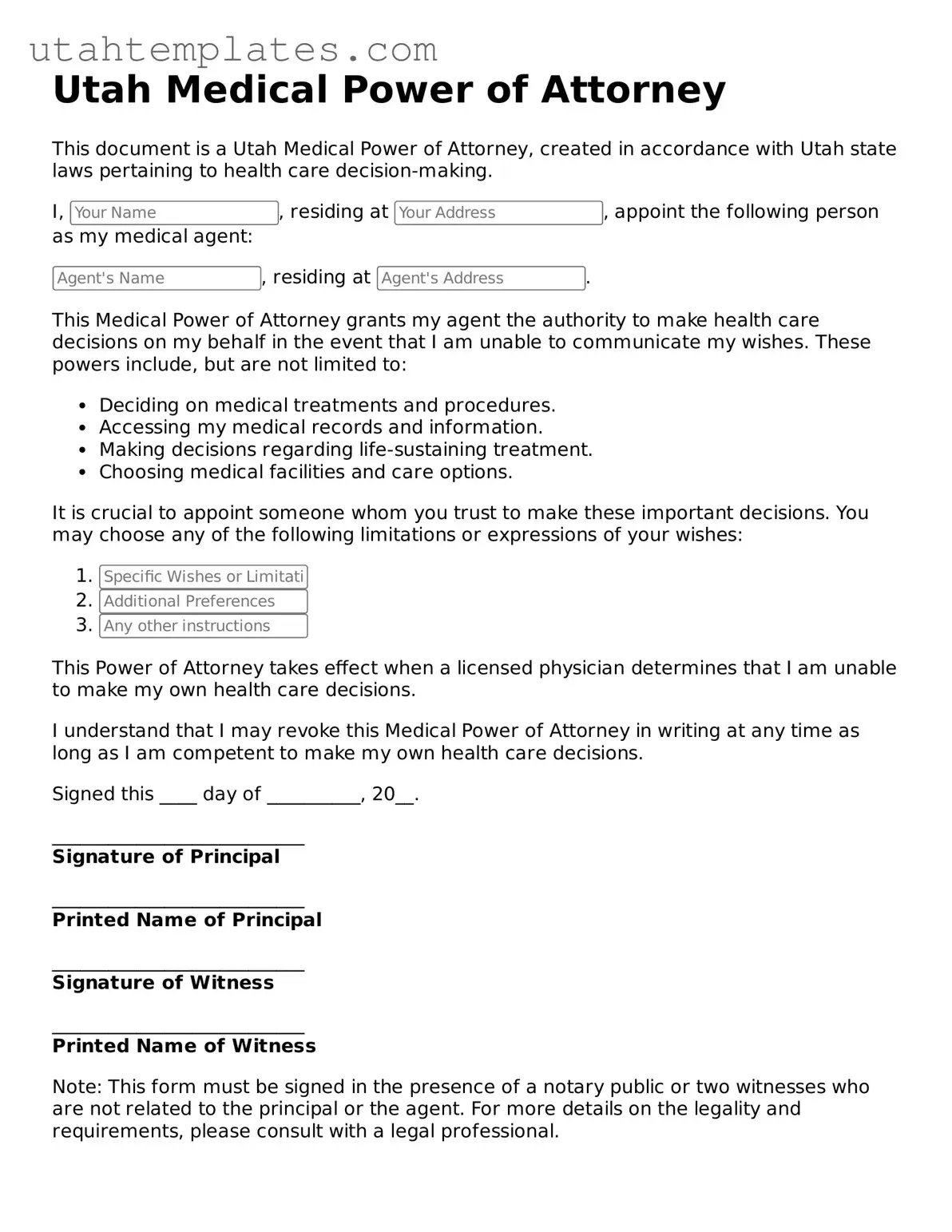Free Medical Power of Attorney Form for Utah
The Utah Medical Power of Attorney form is a legal document that allows individuals to appoint someone they trust to make medical decisions on their behalf if they become unable to do so. This form ensures that a person's healthcare preferences are honored, even when they cannot communicate them directly. Understanding the importance of this document can provide peace of mind for both the individual and their loved ones.
Launch Medical Power of Attorney Editor Here

Free Medical Power of Attorney Form for Utah
Launch Medical Power of Attorney Editor Here
Need to check this off quickly?
Fill out Medical Power of Attorney online without dealing with paper.
Launch Medical Power of Attorney Editor Here
or
Free PDF File
